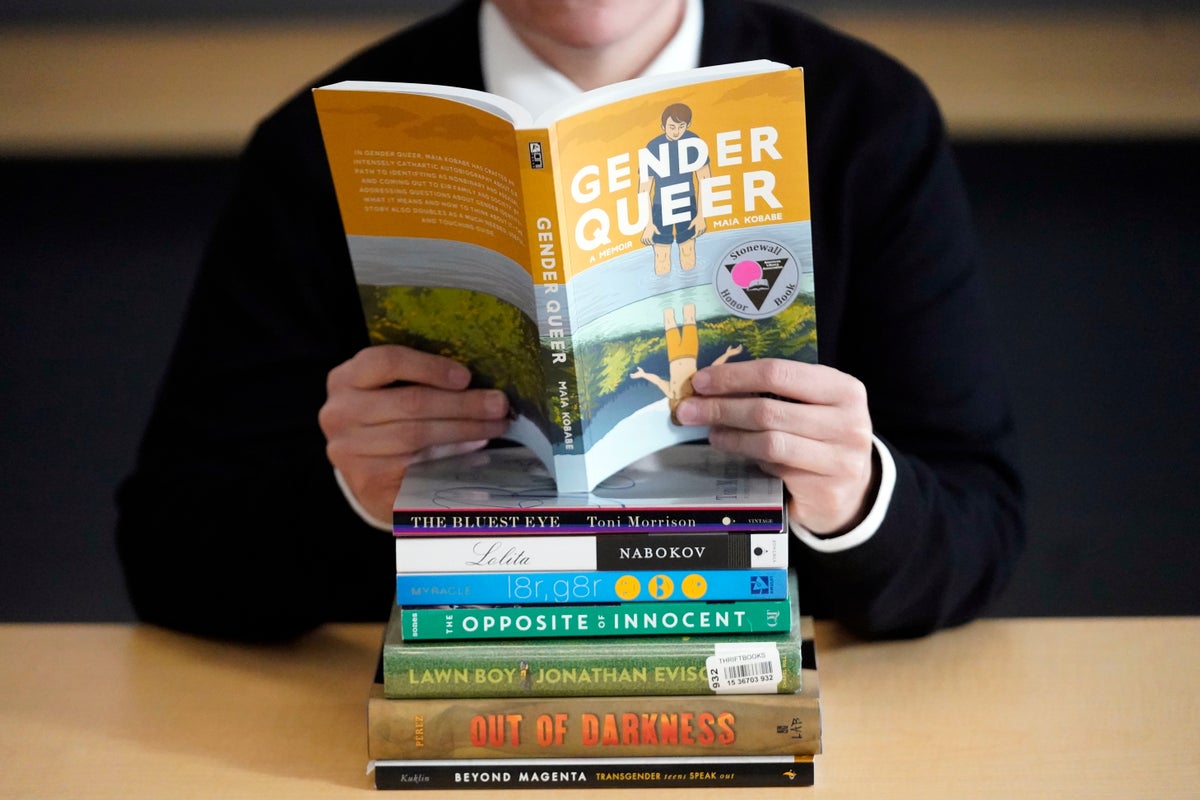
Banned books and proposed restrictions on library materials have surged across the US within the last school year, with coordinated campaigns launching hundreds of attempts to censor and restrict nearly 2,000 individual titles.
A pair of new reports from library and free speech groups reveals a growing phenomenon that is increasingly targetting community libraries, not just schools, which right-wing activists and Republican officials have turned into volatile political minefields in recent years
Public school book ban attempts spiked by 33 per cent within the last school year compared to the previous year, according to free speech advocacy group PEN America.
The report found that more than 40 per cent of such attempts were in Florida alone, where the administration of Governor Ron DeSantis, aligned with activist groups, has “driven mass restrictions” on library materials across the state.
While much of the debate and scrutiny surrounding book bans has focused on schools, a report from the American Library Association found that 49 per cent of challenged books were in public community libraries – up from only 16 per cent one year earlier.
“These attacks on our freedom to read should trouble every person who values liberty and our constitutional rights,” ALA Office for Intellectual Freedom director Deborah Caldwell-Stone said in a statement accompanying the report.
“To allow a group of people or any individual, no matter how powerful or loud, to become the decision-maker about what books we can read or whether libraries exist, is to place all of our rights and liberties in jeopardy,” she added. “Groups with a political agenda have turned their crusade to public libraries, the very embodiment of the First Amendment in our society. This places politics over the well-being and education of young people and everyone’s right to access and use the public library.”
One or more of three prominent right-wing activist groups – Moms for Liberty, Citizens Defending Freedom and Parents’ Rights in Education – were behind censorship campaigns in 122 of the 153 school districts that restricted materials within the last school year, PEN America found.
Roughly 86 per cent – or nearly 3,000 – of all book challenges were in those districts, according to the report.
The American Library Association’s report discovered 695 attempts to censor library materials impacting 1,915 unique titles between January and the end of August, marking a 20 per cent increase from within the same reporting period in 2022.
That year marked the highest number of challenges recorded by the organization since it began collecting such data 20 years ago.
“What this data set does not reveal are the people who want books that speak to their lived experience and librarians who want to make books accessible to people who find them relevant. Both are under attack,” ALA president Emily Drabinski said in a statement.
The explosion of book challenges in Florida follows a series of DeSantis-endorsed policies targeting classroom instruction, including honest depictions of race and racism and gender and sexuality that the governor and other Republicans across the country have characterised as pornography.
Florida’s House Bill 1069 states that “[a]ny material that is subject to an objection… must be removed within [five] school days of receipt of the objection and remain unavailable to students of that school until the objection is resolved. The law also states that book objections that are not resolved among school districts can be taken up by the state’s education board – which consists of DeSantis appointees.
Governor DeSantis, who is seeking the Republican nomination for president, has also expanded legislation derided by opponents as the state’s “Don’t Say Gay” law, which broadly prohibits any “classroom instruction on sexual orientation or gender identity” in all grades, which critics warn is chilling speech involving LGBT+ people under threat of litigation.
Earlier this year, a group of 175 artists and entertainers signed an open letter denouncing a surge in book ban attempts
“We cannot stress enough how these censorious efforts will not end with book bans,” they wrote. “It’s only a matter of time before regressive, suppressive ideologues will shift their focus toward other forms of art and entertainment, to further their attacks and efforts to scapegoat marginalized communities, particularly BIPOC and LGBTQ+ folks.”







